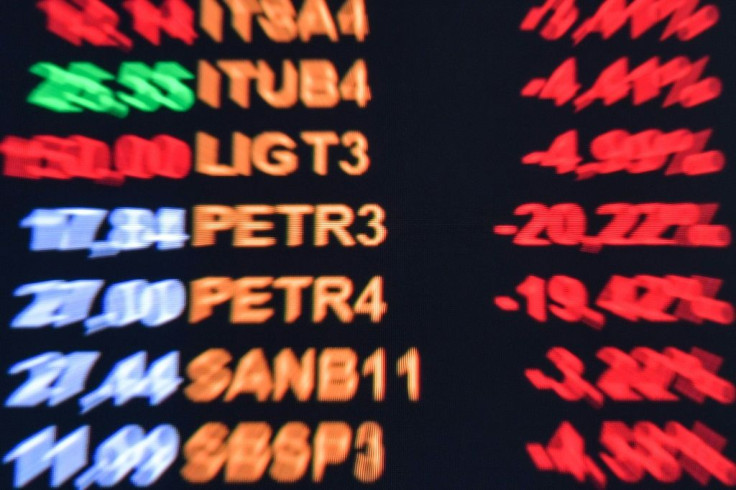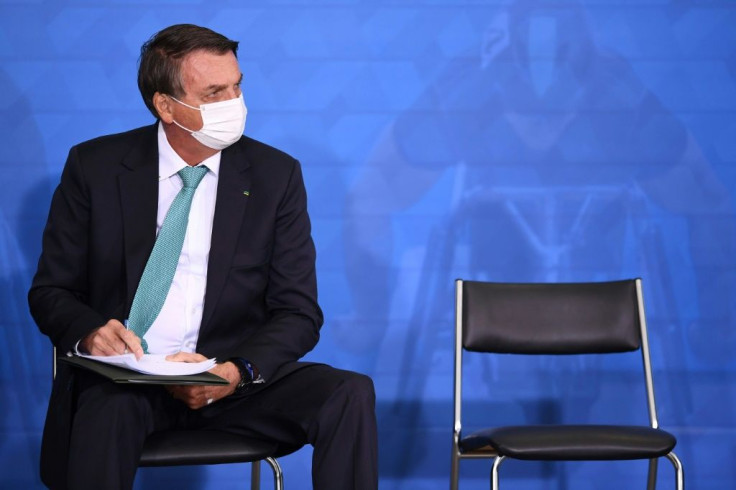Brazil Economy Returns To Pre-pandemic Level With Strong Q1
Brazil's economy, the largest in Latin America, returned to its pre-pandemic level with stronger-than-expected growth of 1.2 percent in the first quarter of 2021, the government said Tuesday.
The upbeat figure boosted hopes for a strong economic recovery this year in Brazil, which has been hit hard by Covid-19.
But there is lingering uncertainty: epidemiologists warn a new surge of the virus is likely.
"The result is far higher than expected. There was no fiscal stimulus (against the pandemic) in the first quarter of 2021, and some analysts were saying we would have a big contraction in GDP," said economist Margarida Gutierrez of the Federal University of Rio de Janeiro (UFRJ).
"Now the GDP forecast for 2021 should increase from 3.5 percent to something around five percent. If (Covid-19) vaccinations go quickly, it could be even more."
The news helped push the Sao Paulo stock exchange to a record close, up 1.63 percent. It was the third straight record close for the Ibovespa index, which had not hit a record since January.

Experts cited by the economic daily Valor had predicted growth of 0.7 percent for the first quarter, after Brazil posted a record 4.1 percent GDP contraction for the year in 2020.
Growth in the first three months of 2021 was largely driven by state and local governments lifting business closures and other Covid-19 restrictions, according to economists.
Epidemiologists say the move came too soon.
They warn Brazil -- already the country with the second-highest death toll in the pandemic, with more than 460,000 lives lost -- now faces a third coronavirus wave.
Brazil's Covid-19 vaccination campaign has been marred by shortages and delays.
Around 10.5 percent of the country's 212 million people have been fully vaccinated so far -- still too small a number to significantly slow the virus.
President Jair Bolsonaro's government meanwhile faces backlash for its controversial handling of the pandemic.

The far-right president has attacked stay-at-home measures, arguing the economic damage they cause is worse than the virus itself.
He has also snubbed face masks, refused offers of vaccines and touted ineffective medications such as chloroquine against Covid-19.
Economic growth for the quarter was driven by the agriculture sector, which expanded by 5.7 percent, said the national statistics institute, IBGE.
The industrial and service sectors also expanded, with growth of 0.7 percent and 0.4 percent, respectively.
"Even with the second wave of the Covid-19 pandemic, GDP grew in the first quarter since, unlike last year, there were fewer restrictions on economic activity in the country," said IBGE analyst Rebeca Palis.
The pace of the economy's pandemic recovery has slowed, however: after contracting 9.2 percent in the second quarter of 2020, it had grown by 7.8 percent in the third and 3.2 percent in the fourth.
Economists will now be watching how the pandemic progresses in Brazil.
The country's Covid-19 curve has declined recently, from a weekly average of more than 3,000 deaths a day in April to about 1,800.
But epidemiologists warn rising infections and hospital occupancy rates indicate a new surge is coming.
Despite the economic expansion in the first quarter, unemployment for the period hit a record high of 14.7 percent, with 14.8 million workers looking for jobs.
© Copyright AFP 2024. All rights reserved.





















